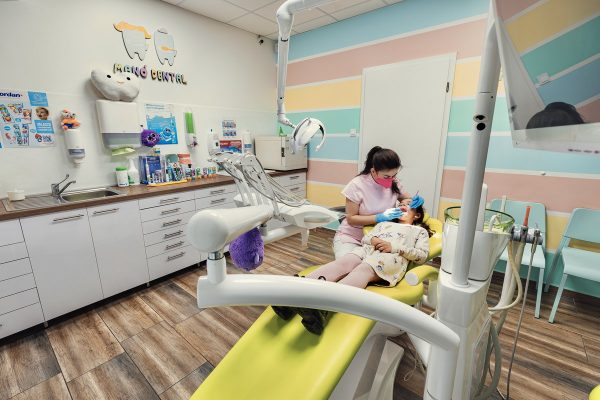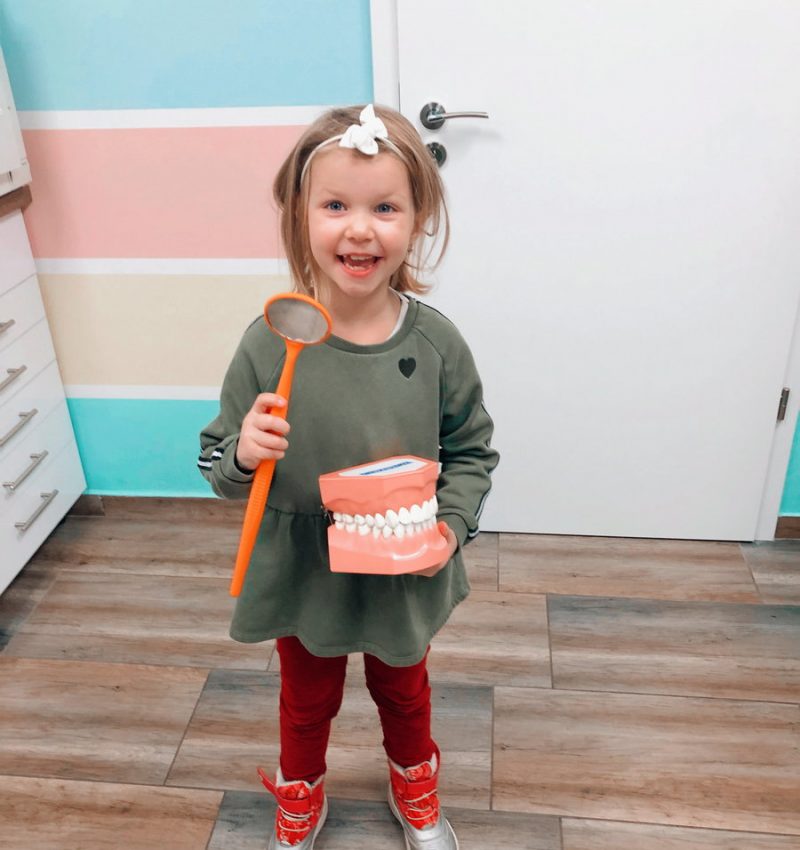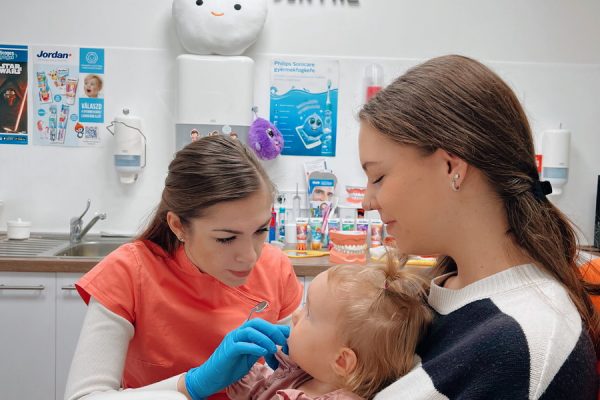Root Canal Treatment

Milk Tooth Root Canal Treatment
It’s a misconception that milk teeth don’t have roots; moreover, they can become inflamed just like permanent teeth roots. Even in early childhood, root canal treatment for milk teeth may become necessary if tooth decay reaches significant proportions or if the tooth has died due to an accident.
When is root canal treatment necessary for a tooth?
Root canal treatment for baby teeth may be necessary in cases where tooth decay has reached a significant depth, reaching the dental pulp, or when a tooth becomes inflamed due to a dental injury or trauma. Typically, a bump may appear on the gum next to the affected tooth, which may even discharge pus. These milk teeth require treatment because an inflamed primary tooth can cause pain just like a permanent tooth, and they play an important role in chewing, speech, and maintaining space for permanent teeth.
It’s extremely important to provide proper care for primary teeth because neglected inflammation can lead to the formation of an abscess, which can have numerous negative consequences.


The process of root canal treatment
So, due to its role in maintaining space, if not necessary, we don’t remove the inflamed baby tooth; instead, during the root canal treatment, we open the tooth and remove the inflamed tissue remnants. Then, we thoroughly flush it with a strong disinfectant solution and seal the root canals with medicated paste. During the follow-up visit, if the symptoms have subsided, we flush the tooth again, replace the medication in the root canals, and finally seal the tooth with filling.
Is every child given an injection before root canal treatment?
No, in most cases, there is no need for injection. However, depending on the specific situation, the pediatric dentist may decide to give one. In such cases, before the injection, we apply a fruit-flavored numbing gel to the specific area, so the child won’t feel the prick. However, they may still feel some pressure, which can be uncomfortable. After the treatment, until the effects of the anesthesia wear off, we advise parents to ensure that the child doesn’t eat or bite their mouth and tongue. Drinking is allowed.





